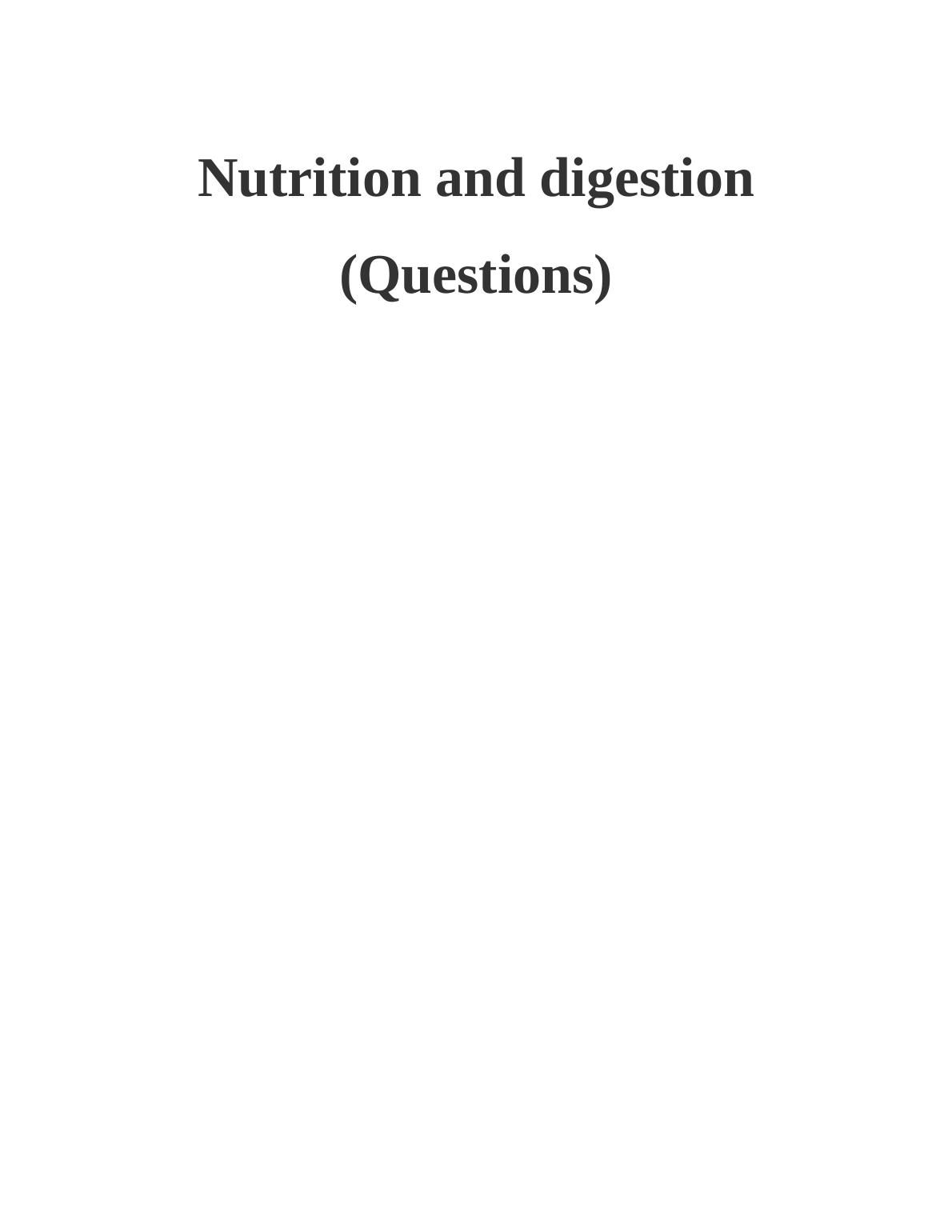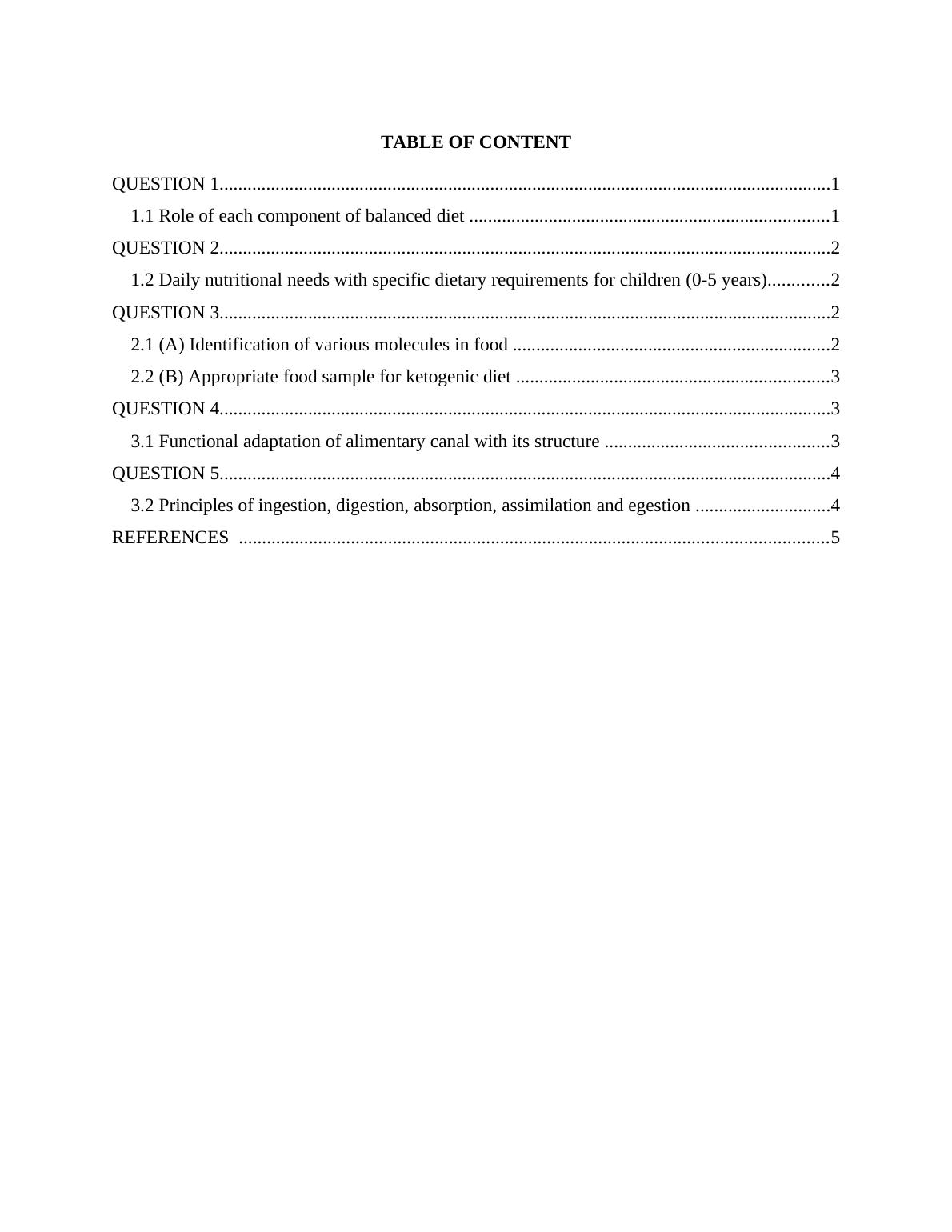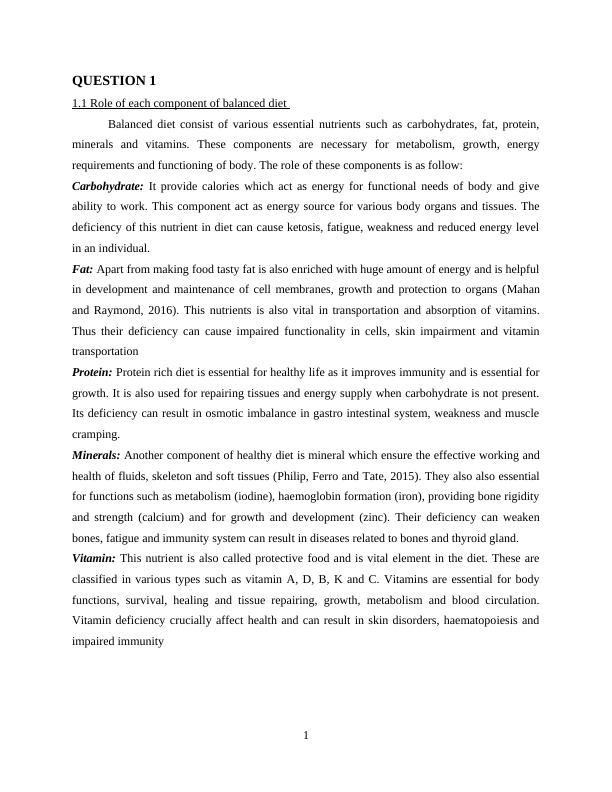Nutrition and Digestion: Role of Components, Nutritional Needs for Children, Molecules in Food, Alimentary Canal, Principles of Digestion
10 Pages1967 Words56 Views
Added on 2023-01-19
About This Document
This document discusses the role of each component of a balanced diet, daily nutritional needs for children, identification of molecules in food, functional adaptation of the alimentary canal, and principles of digestion. It provides valuable information on nutrition and digestion processes. The document also includes references for further reading.
Nutrition and Digestion: Role of Components, Nutritional Needs for Children, Molecules in Food, Alimentary Canal, Principles of Digestion
Added on 2023-01-19
ShareRelated Documents
End of preview
Want to access all the pages? Upload your documents or become a member.
Levels of Organization in the Human Body Assignment
|8
|1293
|230
Macronutrients & Micronutrients solutions
|13
|3008
|404
Nutritional Value of Food Groups and Dietary Requirements for Children
|9
|2816
|238
Report On Aspects Related To Human Health & Nutrition
|9
|2322
|260
Animal Nutrition Assignment PDF
|5
|698
|224
Human Nutrition and the Digestive System
|8
|2032
|70



